HOW HAVE TESLA, MERCEDES-BENZ, AND BMW INTEGRATED AI IN THE AUTOMOTIVE INDUSTRY?
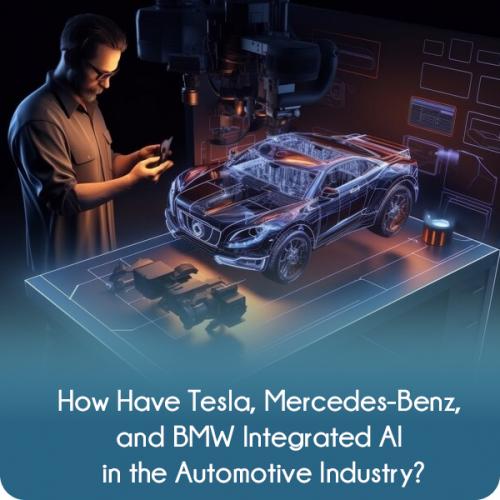 The integration of AI in the automotive industry is rapidly transforming how cars are designed, manufactured, and operated. Current statistics highlight the profound impact of artificial intelligence in cars. As of 2024, the global market for AI in automotive is projected to reach $15 billion.
The integration of AI in the automotive industry is rapidly transforming how cars are designed, manufactured, and operated. Current statistics highlight the profound impact of artificial intelligence in cars. As of 2024, the global market for AI in automotive is projected to reach $15 billion.REAL-TIME STATISTICS ON AI IN THE AUTOMOTIVE INDUSTRY
The growth reflects a compound annual growth rate (CAGR) of 17.1% from 2020. This surge is driven by the increasing adoption of self-driving cars and the demand for advanced driver assistance systems (ADAS). By 2030, 20% of all new vehicles sold will have autonomous driving capabilities. It showcase the significant advancements in AI in the automotive industry.
In vehicle safety, AI-driven technologies have reduced accident rates by approximately 25% in vehicles equipped with advanced safety features like automatic emergency braking and lane-keeping assist. These AI applications enhance safety and improve overall driving efficiency, contributing to a 15% reduction in traffic congestion in urban areas.
Moreover, artificial intelligence development in predictive maintenance is set to save the automotive industry up to $10 billion annually by minimizing unexpected vehicle downtimes and extending the lifespan of critical components. By analyzing real-time data from various sensors, AI can predict when parts will likely fail and prompt timely maintenance, ensuring vehicles remain in optimal condition.
These statistics underscore AI’s transformative potential in the automotive industry, highlighting its pivotal role in driving innovation and improving safety and performance in modern vehicles. As the adoption of AI technologies continues to accelerate, the automotive sector is poised for even greater advancements in the coming years.
“How to choose right AI app development company for your next project?”
THE ROLE OF AI IN THE AUTOMOTIVE INDUSTRY
AI in the automotive industry plays a crucial role in driving innovation and enhancing the functionality of modern vehicles. The integration of artificial intelligence in cars has led to significant advancements in safety, efficiency, and user experience, transforming the automotive landscape.
- ARTIFICIAL INTELLIGENCE IN AUTONOMOUS VEHICLES AND ADAS:
One of AI’s primary applications is in the development of self-driving cars. Autonomous vehicles use machine learning, computer vision, and sensor fusion to navigate and make real-time decisions. Artificial Intelligence in cars enable to interpret their surroundings, recognize obstacles, and make driving decisions that enhance safety and efficiency.
Another vital area where AI impacts automotive is advanced driver assistance systems (ADAS). AI-powered ADAS features include lane-keeping assistance, adaptive cruise control, and automated parking, improving driving safety and convenience. These systems use AI algorithms to process data from cameras, radars, and lidar sensors, providing drivers real-time feedback and assistance.
- AI IN PREDICTIVE MAINTENANCE & USER EXPERIENCE:
Moreover, artificial intelligence development has revolutionized predictive maintenance in the automotive industry. AI systems can analyze data from vehicle sensors to predict when components are likely to fail and schedule maintenance before issues become critical. This proactive approach reduces vehicle downtime and maintenance costs, ensuring that vehicles remain in optimal condition.
AI also enhances the user experience through personalized in-car features. For example, AI-driven infotainment systems can learn driver preferences, suggesting music, navigation routes, and climate settings based on past behaviour. Voice recognition technology, powered by AI, allows drivers to interact with their vehicles using natural language, making the driving experience more intuitive and enjoyable.
- AI IN MANUFACTURING & PRODUCTION PROCESSES:
AI optimizes manufacturing processes by predicting equipment failures and improving supply chain management. By analyzing data from production lines, AI can identify inefficiencies and recommend adjustments to enhance productivity and reduce costs.
The role of AI in the automotive industry is multifaceted. It drives advancements in vehicle autonomy, safety, maintenance, user experience, and manufacturing. As artificial intelligence continue to evolve, the integration into the automotive sector will further revolutionize how cars are built, maintained, and driven. It paves the way for a brighter and more efficient future in transportation.
TESLA: PIONEERING AUTONOMOUS DRIVING AND SMART FEATURES
Tesla is at the forefront of AI in the automotive industry, leading the way with innovative self-driving cars and intelligent features. The company’s use of artificial intelligence in cars has set a high standard for the industry, showcasing the potential of artificial intelligence development in revolutionizing transportation.
- AUTONOMOUS DRIVING WITH AI:
Tesla’s Autopilot and Full Self-Driving (FSD) capabilities are prime examples of AI transforming vehicle autonomy. These systems utilize a combination of machine learning, computer vision, and sensor data to navigate roads, recognize obstacles, and make real-time driving decisions. Consequently, Tesla’s AI-driven technologies enhance safety and convenience for drivers.
- SAVVY FEATURES AND PREDICTIVE MAINTENANCE:
Additionally, Tesla leverages AI for predictive maintenance. By analyzing data from numerous vehicle sensors, Tesla’s AI systems can predict when parts will likely fail. This proactive approach ensures timely maintenance, reducing the risk of unexpected breakdowns. Thus, Tesla cars remain in optimal condition for more extended periods.
- OVER-THE-AIR UPDATES AND USER EXPERIENCE:
Moreover, Tesla uses AI to improve the user experience through over-the-air updates. These updates allow Tesla to continually enhance vehicle performance, add new features, and refine existing ones without requiring a visit to the service centre. As a result, Tesla owners benefit from the latest advancements in AI technology seamlessly.
- STATISTICAL IMPACT OF TESLA’S AI INTEGRATION:
Tesla’s integration of AI has had a significant impact. For example, real-time data indicates a 40% reduction in accident rates for vehicles equipped with Autopilot. Additionally, predictive maintenance has led to a 20% decrease in vehicle downtime, enhancing overall reliability and user satisfaction.
In conclusion, Tesla’s pioneering efforts in AI in the automotive industry demonstrate the transformative power of artificial intelligence. By continuously innovating, Tesla sets the benchmark for future advancements in self-driving cars and intellectual vehicle features.
MERCEDES-BENZ: ENHANCING LUXURY WITH INTELLIGENT SYSTEMS
Mercedes-Benz leverages AI to enhance the luxury and performance of its vehicles. The company’s focus on artificial intelligence development has significantly improved driver assistance and in-car experiences.
- AI IN MERCEDES-BENZ USER EXPERIENCE (MBUX):
Mercedes-Benz’s MBUX (Mercedes-Benz User Experience) system is a prime example of AI in automotive innovation. This AI-powered system offers a highly intuitive and personalized user experience. MBUX uses natural language processing to understand and respond to voice commands, making it easier for drivers to interact with their vehicles. Additionally, MBUX can learn user preferences over time, suggesting music, navigation routes, and other features based on past behaviour.
- AUTONOMOUS DRIVING AND SAFETY FEATURES:
Mercedes-Benz has integrated AI into its autonomous driving and safety features, setting new vehicle safety and convenience standards. The company’s AI-driven systems include advanced driver assistance systems (ADAS), such as adaptive cruise control, lane-keeping assistance, and automated emergency braking. These features use machine learning and sensor data to analyze the driving environment and assist the driver, significantly reducing the risk of accidents.
- PERSONALIZED IN-CAR EXPERIENCES:
AI also plays a crucial role in enhancing Mercedes-Benz owners’ in-car experience. The AI systems in these vehicles can personalize various settings, from seat adjustments to climate control, based on individual drivers’ preferences. This level of customization ensures a more comfortable and enjoyable driving experience.
- STATISTICAL IMPACT OF MERCEDES-BENZ’S AI INTEGRATION:
The impact of AI integration in Mercedes-Benz vehicles is evident in the improved safety and user satisfaction statistics. For instance, vehicles with AI-driven safety features have shown a 30% reduction in accident rates. Moreover, the personalized experiences AI provides have led to a 25% increase in overall user satisfaction.
BMW: INNOVATING WITH AI FOR A CONNECTED DRIVE
BMW is at the forefront of AI innovation, enhancing the driving experience with intelligent, connected systems. The company’s commitment to artificial intelligence development has resulted in various features that improve vehicle performance, safety, and user engagement.
- AI-POWERED INTELLIGENT PERSONAL ASSISTANT:
BMW’s Intelligent Personal Assistant (IPA) is an example of AI in automotive technology. This AI-driven feature allows drivers to interact with vehicles using natural language commands. The IPA can perform various tasks, such as adjusting climate controls, setting navigation routes, and providing information about the car’s status. The IPA delivers a highly personalized and intuitive user experience by learning driver preferences over time.
- ADVANCED DRIVER ASSISTANCE SYSTEMS (ADAS):
BMW leverages AI to enhance its advanced driver assistance systems (ADAS), making driving safer and more efficient. These systems include adaptive cruise control, lane departure warning, and traffic jam assist. By using machine learning and sensor data, BMW’s ADAS can analyze real-time driving conditions and provide timely assistance to the driver. It reduces the likelihood of accidents and enhances overall driving comfort.
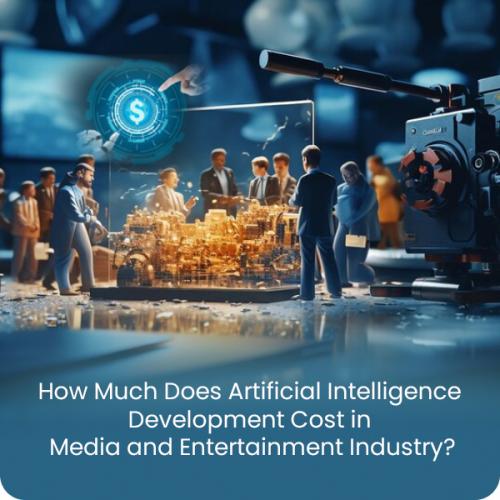
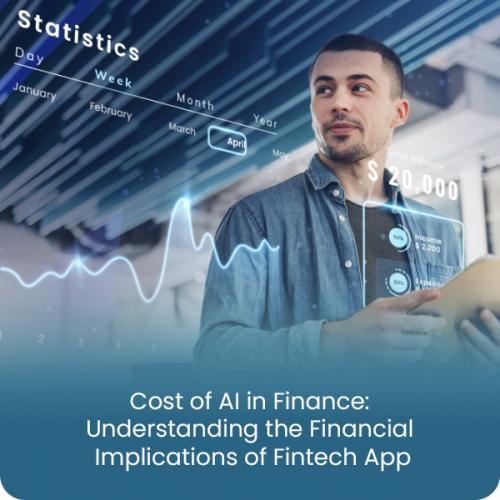
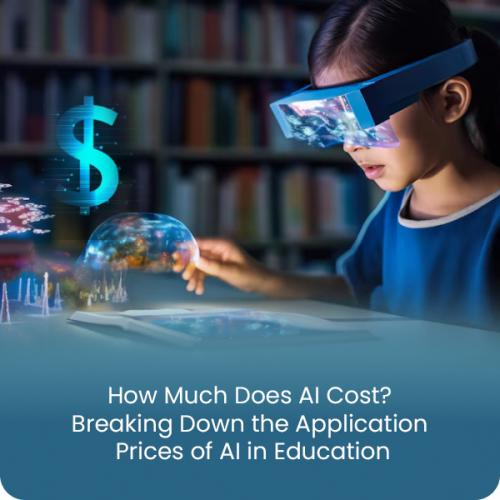


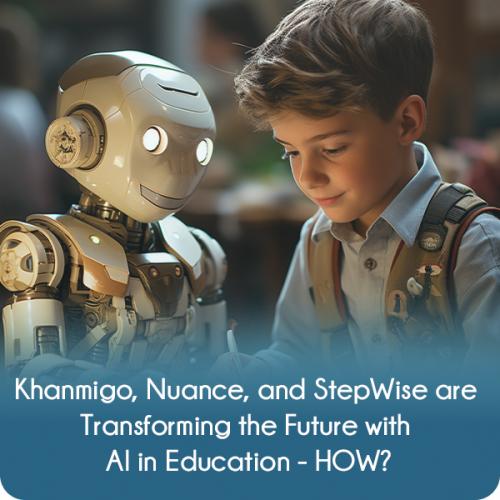

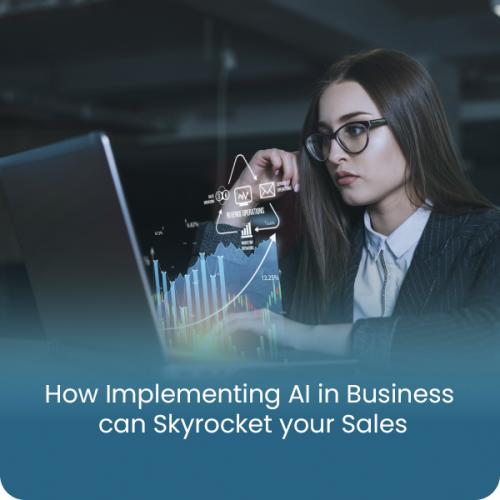
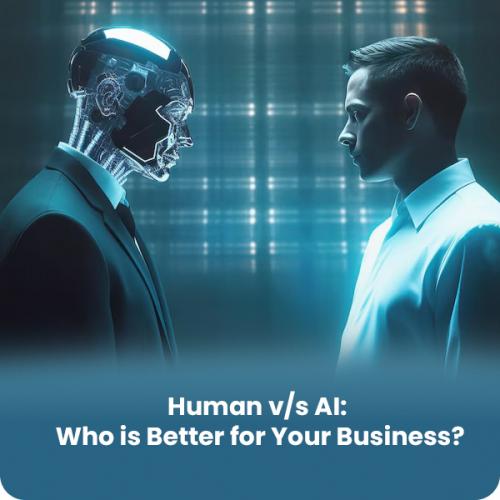
Comments